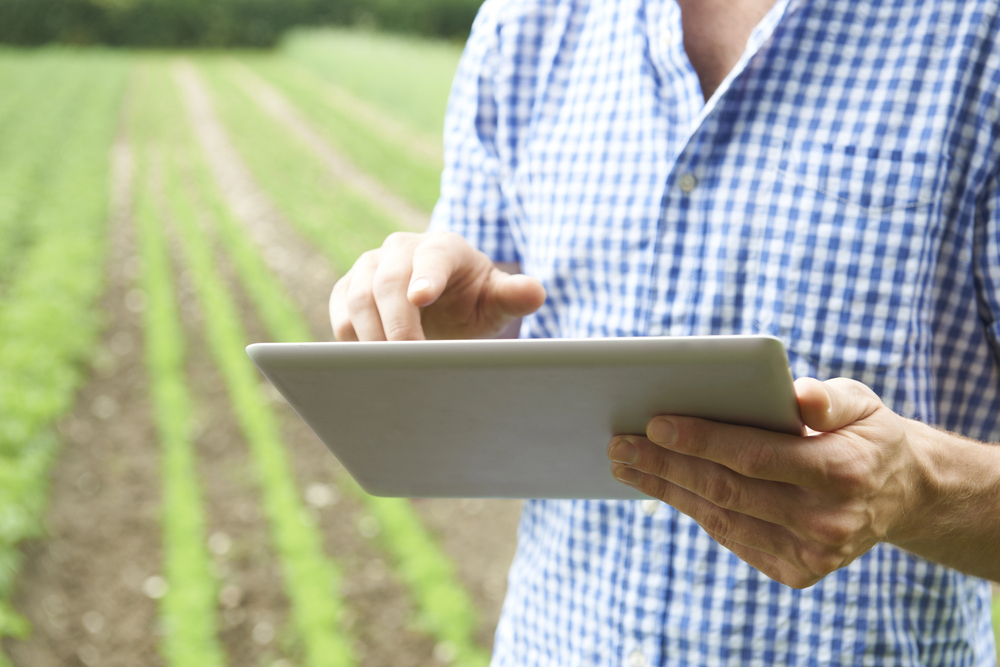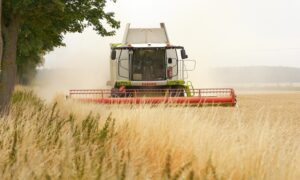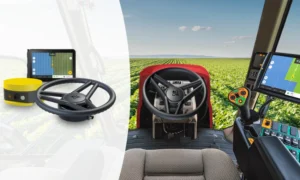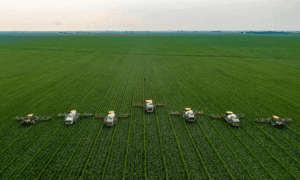We are witnessing the transformation of the agricultural sector, fuelled by the integration of advanced technologies from high-tech industries. According to a recent report from Statista, the market value of smart agriculture worldwide is expected to grow from approximately 15 billion U.S. dollars in 2022 to 33 billion U.S. dollars by 2027.
The Growth and Impact of Agtech Solutions
This rapid growth reveals the increasing interest and investment in Agtech solutions, which have markedly enhanced efficiency, profitability, and sustainability in farming practices.
Moreover, precision farming, one of the key components of Agtech, could increase crop yields while reducing water and fertilizer use, underscoring the potential for significant economic and environmental benefits.
Exploring the Scope of AgtechAgTech
Agricultural technology, or Agtech, focuses on integrating technology in farming to boost productivity, efficiency, and sustainability. It leverages innovations in artificial intelligence (AI), the Internet of Things (IoT), and robotics, transforming traditional farming into more sophisticated and productive operations.
Addressing Global Challenges with Agtech
This surge in attention and investment is driven by the pressing need to address global challenges such as food security and climate change. In an era where technological advancements rapidly reshape our world, Agtech is at the forefront of meeting this demand, offering technologies to transform the efficiency and impact of agricultural operations.
As the world’s population continues to grow, expected to reach nearly 10 billion by 2050, the demand for innovative and sustainable agricultural practices becomes more urgent. Agtech innovations are crucial in developing sustainable strategies to overcome these challenges, aiming to fulfill the United Nations’ Sustainable Development Goal of Zero Hunger.
Agtech emerges as one of the most dynamic sectors by employing cutting-edge technologies to revolutionize agricultural practices, enhancing sustainability and efficiency throughout the food supply chain. This sector is leading the way in technological adoption, making it a critical area for investors and policymakers focused on the future of food and sustainability, effectively setting the stage for a revolution in food security to sustain global populations within the coming decades.
The Vital Role of Agtech in Shaping Modern Agriculture
Agriculture is central to human survival, with organized methods dating back millennia. The Industrial Revolution marked a pivotal shift, intensifying the complexity of food supply chains as urban centers expanded. Throughout the 19th and 20th centuries, advancements in food preservation, fertilizers, and pesticides substantially improved crop yields and food security.
Food security remains a precarious aspect of modern society, susceptible to threats from extreme weather conditions, diseases, and geopolitical tensions. Advances in AI, IoT, and next-generation technologies such as quantum computing offer transformative solutions to redefine agricultural paradigms.
Companies that are Leading the Agtech Revolution
Companies like ICL Group and John Deere are driving the innovation wave in Agtech.
ICL Group
ICL Group, a leading global specialty minerals company, is at the forefront of Agtech innovation, playing a pivotal role in transforming the agricultural landscape. Their ICL Planet Startup Hub nurtures new technological developments in the sector, promoting advancements that enhance productivity and sustainability in farming practices. ICL’s innovative digital solutions, such as GROWERS, ICLeaf, and Agmatix, provide farmers with cutting-edge tools for optimizing operations and improving crop yields.
Additionally, ICL’s Planet Startup Hub portfolio includes visionary Agtech startups like Agrematch, Lavie Bio, and CropX. These companies are pioneering new solutions in agriculture, from bioactive compound discovery to microbiome-based ag-biological products and advanced agricultural analytics.
John Deere
John Deere is another major player driving innovation in Agtech. Renowned for its agricultural machinery, John Deere continuously integrates advanced technologies such as AI and IoT into its farming equipment, providing farmers with tools that optimize efficiency and yield. John Deere’s Operations Center platform offers comprehensive farm management solutions, enabling farmers to monitor and manage their operations in real time. Their commitment to sustainability is evident in their development of energy-efficient machinery and practices that reduce the environmental impact of farming. By pioneering these advancements, John Deere is helping reshape traditional farming into a more resourceful and productive operation. Their innovative solutions not only boost agricultural productivity but also contribute to the long-term sustainability of the farming industry.
CropX
CropX stands out as a pioneer in AgTech, offering groundbreaking soil sensor technology coupled with an advanced data analytics platform. By integrating real-time soil data with weather forecasts and crop growth models, CropX delivers precise irrigation and fertilization recommendations, enabling farmers to maximize yield and resource efficiency. Their platform’s intuitive interface allows for easy adoption, providing actionable insights that lead to water conservation and cost reduction. Dedicated to sustainability, CropX helps farmers implement environmentally friendly practices that boost productivity while protecting natural resources. With ongoing innovation and commitment to enhancing agricultural efficiency, CropX is a key innovator driving the future of smart farming.
Agtech’s Role in Promoting Sustainability and Combating Climate Change
Environmental awareness has surged since the 1990s, influencing a new generation of consumers who prioritize eco-friendly solutions. This shift is propelling agricultural producers towards technologies that align with these values. The Agtech industry is responding with innovations in sustainable farming techniques and materials, reducing agriculture’s environmental footprint.
The New Frontier of Agtech Innovation and Its Impact
The latest generation of Agtech researchers and entrepreneurs, skilled in leveraging digital platforms for collaboration, are introducing a tech-savvy approach to farming. Sustainability is driving the adoption of technologies that allow for precision agriculture. This method is becoming increasingly accessible to farmers of all scales and enhances the targeted application of resources, thereby optimizing agricultural outputs while minimizing waste.
Leveraging Big Data and Advanced Technologies in Agriculture
The convergence of big data with field-level technologies is revolutionizing agriculture, enhancing its flexibility and efficiency. These developments reduce the carbon footprint from farm to table and align closely with global sustainability goals.
Conclusion
As we look towards the future, Agtech stands prominently as an expanding sector and a fundamental solution to the environmental and sustainability challenges facing our planet. By teaming up and engaging with this technological revolution, we anticipate a future where agriculture is more efficient, sustainable, and transparent, significantly advancing global food security and environmental stewardship.































